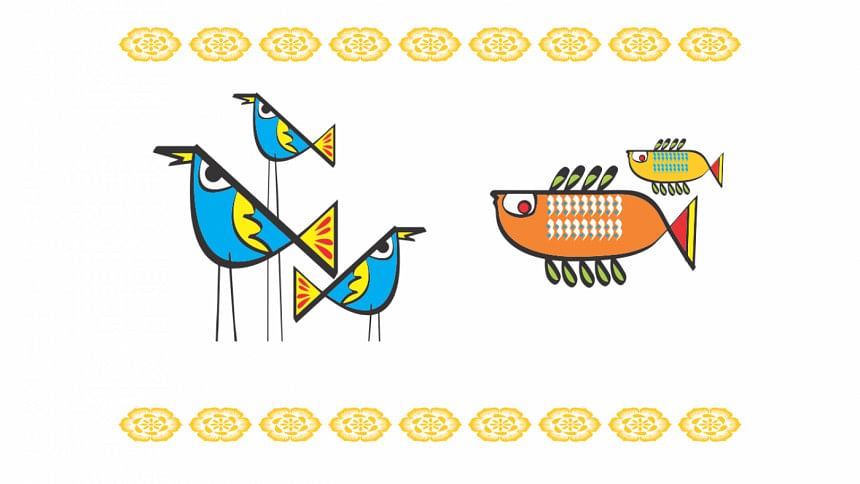Pahela Baishakh

With the soothing spring wind fading, a sultry heat takes hold and a blustery wind sets in, presaging a series of storm that would ravage the otherwise green Bengal. Baishakh thus arrives, apparently throwing everything into disarray, as if a masterly nature painting was tampered with insanely by some lunatic.
The first month in the Bengali calendar, however, has a much deeper bearing on our psyche. As most of our revered poets have articulated, Baishakh comes as an undeniable force, under the guise of a storm, as if to shake us all off our deep slumber because another new year is here with all its promises and potentials.
It indeed works wonders, awakening us once again to where we truly belong as a nation. Bringing us all together in a festivity of cultural practices rooted deeply in secular ethos, it propels us to step out on the streets in droves in celebration of that collective spirit which constitutes the most basic pillar of our non-communal culture. Welcoming people from differing creeds, it shows us how to resist those dark, communal forces that have been at work to segregate us along ideological lines.
We have not forgotten the celebrations on that fateful Pahela Baishakh 14 years ago when a bombing by those communal forces killed 10 people and injured over 50 in the crowd that gathered around Ramna Batamul to watch Chhayanaut's programme. We did understand a politically sponsored bombing, which was equally abominable and horrendous, but why target a programme that was seeking to build a bridge between religions and cultures? It couldn't be more obvious: they tried to rob us of our sweetest songs that envision a society where love and peace are the only guiding principles.
But what has happened in the following years? Overcoming all fears, people from all walks of life have continued to congregate around the Ramna Batamul in even greater numbers. What demonstrates the indomitable spirit of Baishakh more than this?
That, however, should not leave us so complacent as not to see the dangers lurking beneath the surface. Those dark forces that had unleashed a genocide campaign in 1971 have grown even deeper roots over the decades. Seeping into different layers of our society, they have organised themselves better.
Faced against such harsh realities, it is only expected that the spirit of Baishakh that lifts us so high would permeate our lives throughout the year, enabling us to fight back whenever they tilt their heads and to figure out newer ways to spread the light that those forces cannot tolerate.

 For all latest news, follow The Daily Star's Google News channel.
For all latest news, follow The Daily Star's Google News channel. 







Comments